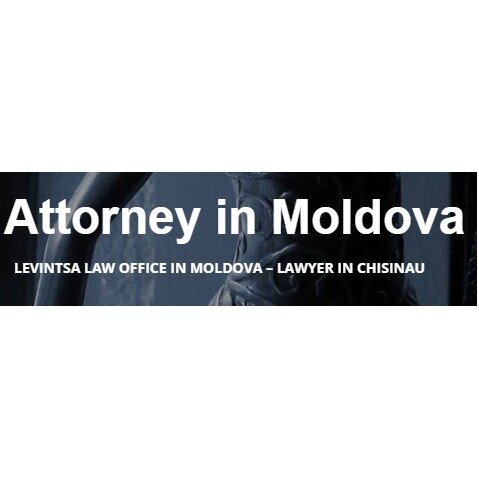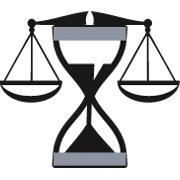Best Trusts Lawyers in Republic of Moldova
Share your needs with us, get contacted by law firms.
Free. Takes 2 min.
Or refine your search by selecting a city:
List of the best lawyers in Republic of Moldova
About Trusts Law in Republic of Moldova
Trusts in Republic of Moldova are a legal arrangement in which a person (the settlor) transfers assets to a trustee to hold and manage for the benefit of one or more beneficiaries. The trust deed sets out the terms and conditions of the trust, including the powers and duties of the trustee.
Why You May Need a Lawyer
You may require legal assistance in setting up a trust, interpreting trust documents, resolving disputes between trustees and beneficiaries, or navigating complex tax implications related to trusts. A lawyer can provide guidance and ensure that your interests are protected.
Local Laws Overview
In Republic of Moldova, trusts are governed by the Civil Code and the Law on Trusts. Some key aspects of local trust law include the requirement for a written trust deed, the duty of care owed by trustees to beneficiaries, and the ability to modify or terminate trusts under certain conditions.
Frequently Asked Questions
What is a trustee?
A trustee is a person or entity appointed to manage trust assets and carry out the terms of the trust deed.
Can I be a trustee and a beneficiary of the same trust?
Yes, it is possible for a trustee to also be a beneficiary of the trust, but there are certain limitations and restrictions that must be followed.
How are trusts taxed in Republic of Moldova?
Trusts are subject to taxation on any income they generate, and beneficiaries may also be taxed on distributions they receive from the trust.
Can I change the terms of a trust after it has been established?
Modifying a trust after it has been created can be complex, but it is possible under certain circumstances. It is advisable to seek legal advice before making any changes to a trust.
What happens to a trust if the trustee becomes incapacitated?
If a trustee becomes incapacitated, a successor trustee may be appointed to manage the trust assets. It is important to have contingency plans in place to ensure the trust continues to be administered effectively.
Are trusts confidential in Republic of Moldova?
Trusts are generally confidential, as trust documents are not publicly disclosed. However, trustees may be required to provide information to certain governmental authorities or other parties as necessary.
Can a trust be contested in court?
Trusts can be contested in court if there are disputes over the validity or administration of the trust. A lawyer can assist in resolving trust disputes through mediation or litigation if necessary.
What is the role of a protector in a trust?
A protector is a person appointed to oversee the actions of the trustee and ensure that the trust is being managed in accordance with the trust deed. Protectors have the power to remove and appoint trustees, among other duties.
Do I need a lawyer to set up a trust in Republic of Moldova?
While it is possible to create a trust without legal assistance, consulting with a lawyer can help ensure that the trust is structured in a way that achieves your goals and complies with local laws.
How can I find a trust lawyer in Republic of Moldova?
You can search for trust lawyers through legal directories, bar associations, or recommendations from friends or family members. It is important to choose a lawyer with experience in trust law to ensure quality legal representation.
Additional Resources
For more information on trusts in Republic of Moldova, you can consult the Ministry of Justice, the Moldovan Bar Association, or legal publications that cover trust law topics.
Next Steps
If you require legal assistance in setting up or managing a trust in Republic of Moldova, consider contacting a trust lawyer who can provide tailored advice and guidance based on your specific situation. Be prepared to discuss your goals, assets, and any concerns you may have related to trusts.
Lawzana helps you find the best lawyers and law firms in Republic of Moldova through a curated and pre-screened list of qualified legal professionals. Our platform offers rankings and detailed profiles of attorneys and law firms, allowing you to compare based on practice areas, including Trusts, experience, and client feedback.
Each profile includes a description of the firm's areas of practice, client reviews, team members and partners, year of establishment, spoken languages, office locations, contact information, social media presence, and any published articles or resources. Most firms on our platform speak English and are experienced in both local and international legal matters.
Get a quote from top-rated law firms in Republic of Moldova — quickly, securely, and without unnecessary hassle.
Disclaimer:
The information provided on this page is for general informational purposes only and does not constitute legal advice. While we strive to ensure the accuracy and relevance of the content, legal information may change over time, and interpretations of the law can vary. You should always consult with a qualified legal professional for advice specific to your situation.
We disclaim all liability for actions taken or not taken based on the content of this page. If you believe any information is incorrect or outdated, please contact us, and we will review and update it where appropriate.
Browse trusts law firms by city in Republic of Moldova
Refine your search by selecting a city.











